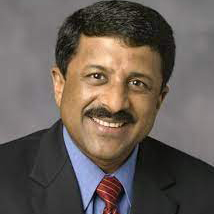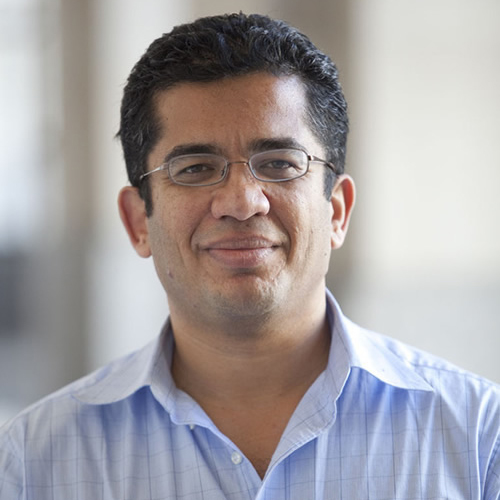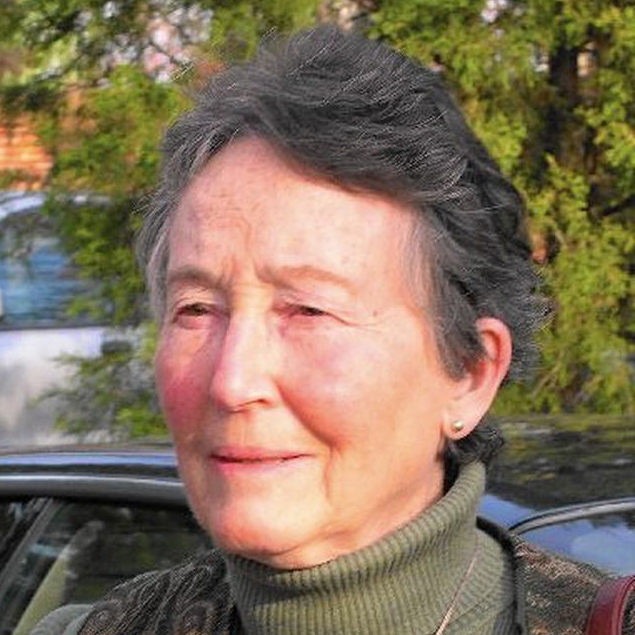| Speakers |
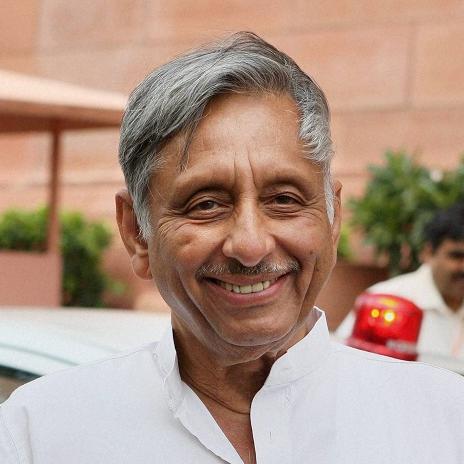 Mani Shankar Aiyar is the current Union Minister of Panchayati Raj. He represents the Mayiladuturai district of Tamil Nadu in the 14th Lok Sabha for the Indian National Congress party. Shri Aiyar was educated at the Doon School, Dehradun, St. Stephen`s College, University of Delhi (Delhi) and Trinity Hall, Cambridge University (U.K.). He has an MA in Economics. Shri Aiyar spent over 20 years in the Indian Foreign Service and has since then held key positions in the Congress Party as well as the Indian government. In 1991, Shri Aiyar was elected to the Lok Sabha, and in 1992 to the All India Congress Committee. He has served as Union Minister, Petroleum & Natural Gas and at present serves as Union Cabinet Minister of Panchayati Raj, Minister of Youth Affairs & Sports and Minister of Development of North Eastern Region. In addition, Shri Aiyar has published widely in scholarly journals and popular media. Mani Shankar Aiyar is the current Union Minister of Panchayati Raj. He represents the Mayiladuturai district of Tamil Nadu in the 14th Lok Sabha for the Indian National Congress party. Shri Aiyar was educated at the Doon School, Dehradun, St. Stephen`s College, University of Delhi (Delhi) and Trinity Hall, Cambridge University (U.K.). He has an MA in Economics. Shri Aiyar spent over 20 years in the Indian Foreign Service and has since then held key positions in the Congress Party as well as the Indian government. In 1991, Shri Aiyar was elected to the Lok Sabha, and in 1992 to the All India Congress Committee. He has served as Union Minister, Petroleum & Natural Gas and at present serves as Union Cabinet Minister of Panchayati Raj, Minister of Youth Affairs & Sports and Minister of Development of North Eastern Region. In addition, Shri Aiyar has published widely in scholarly journals and popular media. |
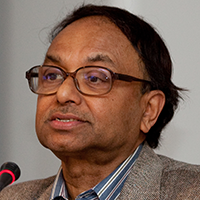 Pranab Bardhan is Professor of Economics at the University of California, Berkeley, and co-chair of the MacArthur Foundation-funded Network on the Effects of Inequality on Economic Performance. He has done theoretical and field studies research on rural institutions in poor countries, on political economy of development policies, and on international trade. A part of his work is in the interdisciplinary area of economics, political science, and social anthropology. He was Chief Editor of the Journal of Development Economics for 1985-2003. Widely published and cited, Professor Bardhan's most recent publications include International Trade, Growth and Development; Poverty, Agrarian Structure, and Political Economy in India; Scarcity, Conflicts and Cooperation; Essays in Political and Institutional Economics of Development; Globalization and Egalitarian Redistribution, Inequality, Cooperation, and Environmental Sustainability, and (co-edited), Decentralization and Local Governance in Developing Countries: A Comparative Perspective. Pranab Bardhan is Professor of Economics at the University of California, Berkeley, and co-chair of the MacArthur Foundation-funded Network on the Effects of Inequality on Economic Performance. He has done theoretical and field studies research on rural institutions in poor countries, on political economy of development policies, and on international trade. A part of his work is in the interdisciplinary area of economics, political science, and social anthropology. He was Chief Editor of the Journal of Development Economics for 1985-2003. Widely published and cited, Professor Bardhan's most recent publications include International Trade, Growth and Development; Poverty, Agrarian Structure, and Political Economy in India; Scarcity, Conflicts and Cooperation; Essays in Political and Institutional Economics of Development; Globalization and Egalitarian Redistribution, Inequality, Cooperation, and Environmental Sustainability, and (co-edited), Decentralization and Local Governance in Developing Countries: A Comparative Perspective.
Selected Documents: |
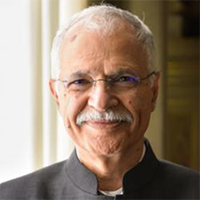 Pradeep Chhibber studies party systems, party aggregation, and the politics of India. His research examines the relationship between social divisions and party competition and conditions that lead to the emergence of national or regional parties in a nation-state. Pradeep received an M.A. and an M.Phil. from the University of Delhi and a Ph.D. from UCLA. He is currently the Indo-American Community Chair in India Studies and the Chair of the Department of Political Science at the University of California, Berkeley. Pradeep Chhibber studies party systems, party aggregation, and the politics of India. His research examines the relationship between social divisions and party competition and conditions that lead to the emergence of national or regional parties in a nation-state. Pradeep received an M.A. and an M.Phil. from the University of Delhi and a Ph.D. from UCLA. He is currently the Indo-American Community Chair in India Studies and the Chair of the Department of Political Science at the University of California, Berkeley.
Selected Documents:
|
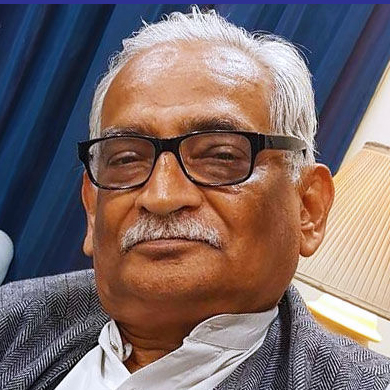 Rajeev Dhavan is a senior advocate at the Supreme Court and other Courts in India, having fought many cases on affirmative action, human rights, secularism and constitutional governance. He is also the Director of a Public Interest law firm, Public Interest Legal Support and Research Centre (PILSARC). Rajeev is an Honorary Professor of the Indian Law Institute in New Delhi. He has taught at Queens University Belfast and the University of West London. He has also had teaching assignments at London and Delhi Universities and the Universities of Madison (Wisconsin) and of Austin (Texas). Rajeev was elected to the International Commission of Jurists in June 1998 and to the ICJ's Executive Committee in October 2003. He is a regular columnist in India's leading newspaper and has written and edited many publications including books on the judiciary, the media, human rights and public law. Rajeev Dhavan is a senior advocate at the Supreme Court and other Courts in India, having fought many cases on affirmative action, human rights, secularism and constitutional governance. He is also the Director of a Public Interest law firm, Public Interest Legal Support and Research Centre (PILSARC). Rajeev is an Honorary Professor of the Indian Law Institute in New Delhi. He has taught at Queens University Belfast and the University of West London. He has also had teaching assignments at London and Delhi Universities and the Universities of Madison (Wisconsin) and of Austin (Texas). Rajeev was elected to the International Commission of Jurists in June 1998 and to the ICJ's Executive Committee in October 2003. He is a regular columnist in India's leading newspaper and has written and edited many publications including books on the judiciary, the media, human rights and public law. |
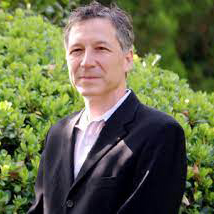 Alberto Diaz-Cayeros earned his Ph.D at Duke University in 1997. Before joining the faculty at Stanford in 2001, he served as an assistant professor of political science at the University of California, Los Angeles. Diaz has also served as a researcher at Centro de Investigacion Para el Desarrollo, A.C. from 1997-1999. His work has primarily focused on federalism and economic reform in Latin America, and Mexico in particular. He has published widely in Spanish and English. His forthcoming book is entitled Overawing the States: Federalism, Fiscal Authority and Centralization in Latin America. Alberto Diaz-Cayeros earned his Ph.D at Duke University in 1997. Before joining the faculty at Stanford in 2001, he served as an assistant professor of political science at the University of California, Los Angeles. Diaz has also served as a researcher at Centro de Investigacion Para el Desarrollo, A.C. from 1997-1999. His work has primarily focused on federalism and economic reform in Latin America, and Mexico in particular. He has published widely in Spanish and English. His forthcoming book is entitled Overawing the States: Federalism, Fiscal Authority and Centralization in Latin America. |
 Kent Eaton is Associate Professor of Politics at UC Santa Cruz. He studies comparative politics, the political economy of development, and the causes and consequences of institutional change. Professor Eaton has lived and/or conducted research in Argentina, Bolivia, Brazil, Chile, Colombia, Ecuador, the Philippines, and Uruguay. Currently, Eaton's research examines territorial politics in Latin America and seeks to understand why territorial interests appear to be displacing the functional interests that dominated political life in the region for most of the previous century. From different perspectives, his three ongoing projects focus on this underlying question of territoriality in the region. First, in the wake of economic liberalization and decentralization, Eaton is studying the conflicts that have developed between subnational governments and transnational corporations over the terms and benefits of direct foreign investment. Second, he is examining the sources of increased tension between subnational governments in numerous Latin American countries, focusing in particular on the rise of regional autonomy movements in some of the continent's most economically-advanced subnational regions. Third, Eaton is studying the consequences of decentralization in conflict-prone settings, investigating the conditions under which decentralizing reforms either ameliorate or worsen armed conflict. Kent Eaton is Associate Professor of Politics at UC Santa Cruz. He studies comparative politics, the political economy of development, and the causes and consequences of institutional change. Professor Eaton has lived and/or conducted research in Argentina, Bolivia, Brazil, Chile, Colombia, Ecuador, the Philippines, and Uruguay. Currently, Eaton's research examines territorial politics in Latin America and seeks to understand why territorial interests appear to be displacing the functional interests that dominated political life in the region for most of the previous century. From different perspectives, his three ongoing projects focus on this underlying question of territoriality in the region. First, in the wake of economic liberalization and decentralization, Eaton is studying the conflicts that have developed between subnational governments and transnational corporations over the terms and benefits of direct foreign investment. Second, he is examining the sources of increased tension between subnational governments in numerous Latin American countries, focusing in particular on the rise of regional autonomy movements in some of the continent's most economically-advanced subnational regions. Third, Eaton is studying the consequences of decentralization in conflict-prone settings, investigating the conditions under which decentralizing reforms either ameliorate or worsen armed conflict. |
|
Selected Documents: |
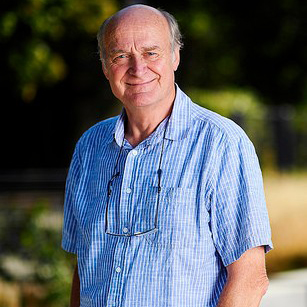 John Harriss is an anthropologist with long-standing interests in the political economy of development, especially in regard to South Asia where he has conducted a good deal of field research, both urban and rural. A former Dean of the School of Development Studies at the University of East Anglia, and Director of the Development Studies Institute at the London School of Economics, he is now Director of the School for International Studies at Simon Fraser University, Vancouver. John Harriss is an anthropologist with long-standing interests in the political economy of development, especially in regard to South Asia where he has conducted a good deal of field research, both urban and rural. A former Dean of the School of Development Studies at the University of East Anglia, and Director of the Development Studies Institute at the London School of Economics, he is now Director of the School for International Studies at Simon Fraser University, Vancouver.
Selected Documents: |
|
Before assuming his current post as Finance Minister, Dr. Isaac served on the steering committee on Decentralized Planning and Planning for Rural Development. He has been a Member of the Kerala State Planning Board (1988-1990) and Member of Research Advisory Committee, Kerala Sasthra Sahitya Parishad. Dr. Isaac has also served as Professor at the Centre for Development Studies, Thiruvananthapuram. Dr. Isaac joined the Student Federation of India in 1971 and has been an active and involved member of the CPI(M) since then. He represents the Mararikulam constituency in the Kerala Legislative Assembly. |
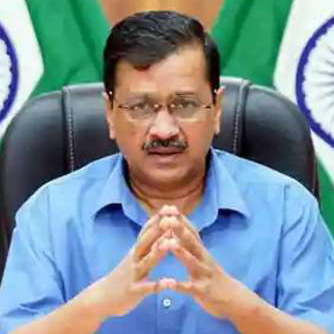 Arvind Kejriwal: A mechanical engineer from IIT Kharagpur, Arvind joined the Indian civil services as a member of Indian Revenue Service in 1992. As a tax officer with the Indian Revenue Service, Arvind Kejriwal became aware of the many powers that tax officials held over private citizens and how easily these powers could be abused. In 2000, he founded Parivartan. The first activity was to provide relief to the taxpayers from extortionist corruption in Income Tax Department. The taxpayers in Delhi were exhorted not to pay bribes but to approach Parivartan with their grievances. About 700 grievances received have been resolved so far. Together with Aruna Roy and others, he campaigned for the Right to Information Act, which was passed in 2005. In July 2006, he spearheaded an awareness campaign for RTI across India. In 2006, Arvind was awarded the 2006 Ramon Magsaysay Award for Emergent Leadership. In February 6, 2007, Arvind was named CNN IBN Indian of the Year in Public Service for 2006. Arvind Kejriwal: A mechanical engineer from IIT Kharagpur, Arvind joined the Indian civil services as a member of Indian Revenue Service in 1992. As a tax officer with the Indian Revenue Service, Arvind Kejriwal became aware of the many powers that tax officials held over private citizens and how easily these powers could be abused. In 2000, he founded Parivartan. The first activity was to provide relief to the taxpayers from extortionist corruption in Income Tax Department. The taxpayers in Delhi were exhorted not to pay bribes but to approach Parivartan with their grievances. About 700 grievances received have been resolved so far. Together with Aruna Roy and others, he campaigned for the Right to Information Act, which was passed in 2005. In July 2006, he spearheaded an awareness campaign for RTI across India. In 2006, Arvind was awarded the 2006 Ramon Magsaysay Award for Emergent Leadership. In February 6, 2007, Arvind was named CNN IBN Indian of the Year in Public Service for 2006. |
|
Selected Documents: |
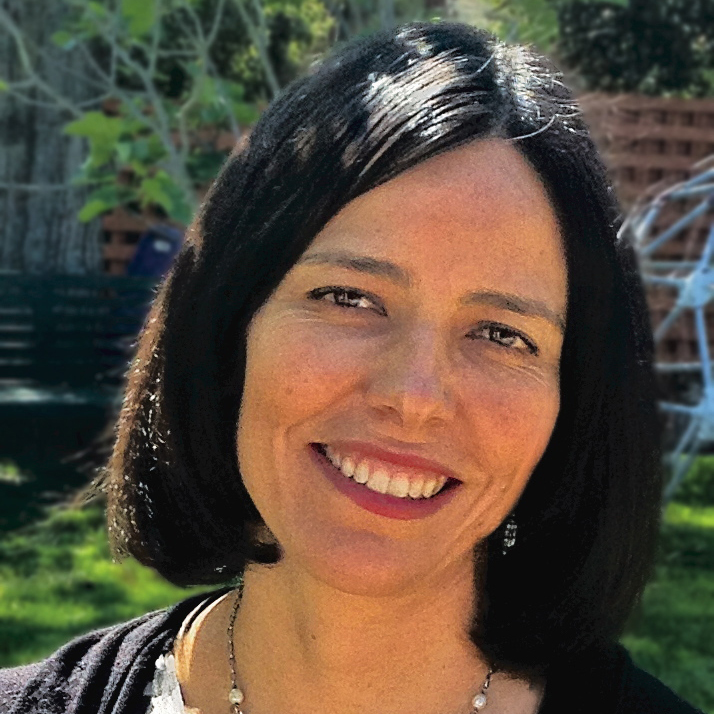 Beatriz Magaloni joined the faculty at Stanford in 2001. She previously served as an Assistant Professor at UCLA where she taught in the Department of Political Science. She graduated with a PhD from Duke University in 1997. She won the American Political Science Association's Gabriel Almond Award for the Best Dissertation in Comparative Politics in 1998. She has been a visiting fellow at Harvard University. Beatriz Magaloni joined the faculty at Stanford in 2001. She previously served as an Assistant Professor at UCLA where she taught in the Department of Political Science. She graduated with a PhD from Duke University in 1997. She won the American Political Science Association's Gabriel Almond Award for the Best Dissertation in Comparative Politics in 1998. She has been a visiting fellow at Harvard University. |
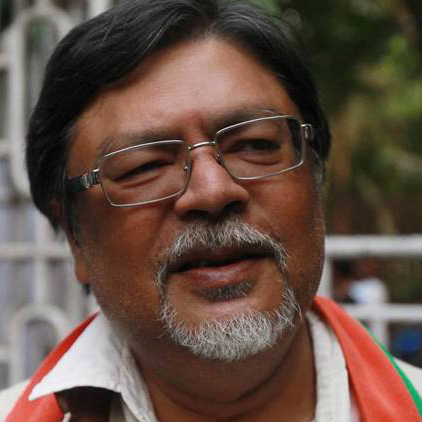 Chandan Mitra is editor and managing director of The Pioneer newspaper in Delhi and an independently elected (but BJP-supported) Member of the Rajya Sabha. Dr. Mitra did his schooling from La Martiniere for Boys in Kolkata and graduated in Economics from St. Stephen's College, Delhi University. Dr. Mitra did his MA and M.Phil in History also from Delhi University, and then obtained his Ph.D. from Magdalen College in Oxford University in Modern Indian history. He started his career in Indian journalism as an Assistant Editor with The Statesman in Kolkata before moving to the Times of India in Delhi. Following this he joined The Sunday Observer and eventually joined The Pioneer and now is its editor and managing director. Chandan Mitra is editor and managing director of The Pioneer newspaper in Delhi and an independently elected (but BJP-supported) Member of the Rajya Sabha. Dr. Mitra did his schooling from La Martiniere for Boys in Kolkata and graduated in Economics from St. Stephen's College, Delhi University. Dr. Mitra did his MA and M.Phil in History also from Delhi University, and then obtained his Ph.D. from Magdalen College in Oxford University in Modern Indian history. He started his career in Indian journalism as an Assistant Editor with The Statesman in Kolkata before moving to the Times of India in Delhi. Following this he joined The Sunday Observer and eventually joined The Pioneer and now is its editor and managing director.
Selected Documents: |
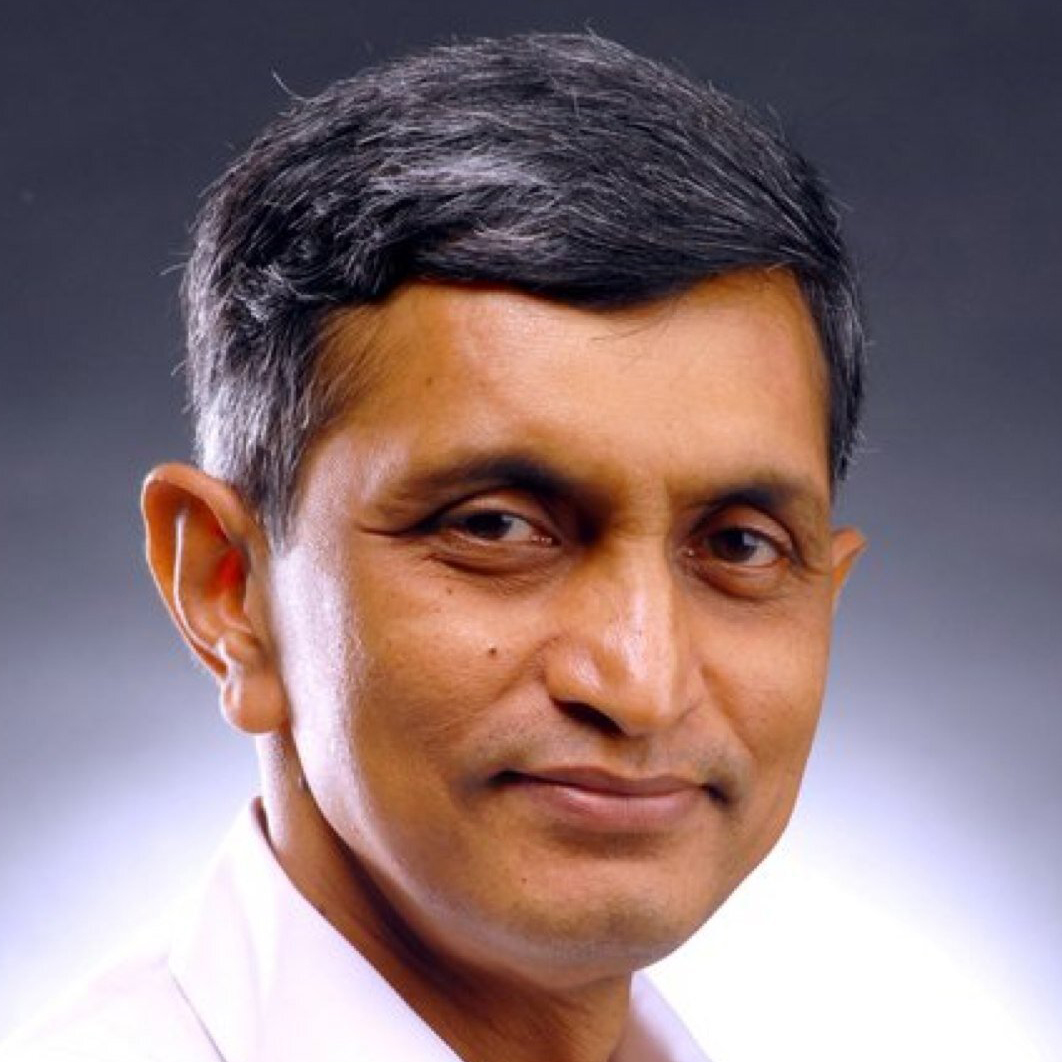 Dr Jayaprakash Narayan is a physician by training, a public servant by choice, and a democrat by conviction. He joined the Indian Administrative Service in 1980 in the aftermath of the 'Emergency' and the failure of the Janata Experiment. During his nearly 17 years of distinguished public service in various capacities, he acquired a formidable reputation in the State of Andhra Pradesh because of major policy initiatives such as the empowerment of parents in schools, speedy justice through rural courts, and economic reform of Andhra Pradesh. He also helped develop the Infocity in Hyderabad. Among other things, he served as Secretary to both Governor and Chief Minister. Dr Jayaprakash Narayan is a physician by training, a public servant by choice, and a democrat by conviction. He joined the Indian Administrative Service in 1980 in the aftermath of the 'Emergency' and the failure of the Janata Experiment. During his nearly 17 years of distinguished public service in various capacities, he acquired a formidable reputation in the State of Andhra Pradesh because of major policy initiatives such as the empowerment of parents in schools, speedy justice through rural courts, and economic reform of Andhra Pradesh. He also helped develop the Infocity in Hyderabad. Among other things, he served as Secretary to both Governor and Chief Minister.
In 1996, he resigned from the IAS in order to pursue more fundamental social change and formed Lok Satta with like-minded colleagues. Lok Satta emerged as India's leading civil society initiative and people's movement for wide-ranging governance and political reforms. Lok Satta launched a national platform called VOTEINDIA in partnership with several organizations to spearhead the campaign for political reforms. Dr Narayan was the National Coordinator of LOK SATTA and VOTEINDIA movements. Dr. Jayaprakash Narayan, is today, the leader of the LOK SATTA PARTY which was launched on October 2nd 2006. |
|
Selected Documents:
|
 Kevin J. O'Brien is the Bedford Professor of Political Science and Chair of the Center for Chinese Studies at the University of California, Berkeley. His research focuses on Chinese politics in the reform era. His most recent work centers on theories of popular contention, particularly the origins, dynamics, and outcomes of protest in the Chinese countryside. He is co-author, with Lianjiang Li, of Rightful Resistance in Rural China (Cambridge, 2006) and co-editor, with Neil Diamant and Stanley Lubman, of Engaging the Law in China: State, Society and Possibilities for Justice (Stanford, 2005). Professor O'Brien is currently working on a new book, Popular Contention in China, which will be published in 2008. Two of his earlier articles are relevant to the themes of this conference: "Villagers, Elections, and Citizenship in Contemporary China," Modern China (October 2001): 407-35 and "Accommodating 'Democracy' in a One-Party State: Introducing Village Elections in China," (with Lianjiang Li), China Quarterly (June 2000): 465-89. In the late 1980s and early 1990s, he also wrote articles on Chinese local people's congresses, which appeared in Asian Survey, China Quarterly, Comparative Political Studies, Legislative Studies Quarterly, and Studies in Comparative Communism. Kevin J. O'Brien is the Bedford Professor of Political Science and Chair of the Center for Chinese Studies at the University of California, Berkeley. His research focuses on Chinese politics in the reform era. His most recent work centers on theories of popular contention, particularly the origins, dynamics, and outcomes of protest in the Chinese countryside. He is co-author, with Lianjiang Li, of Rightful Resistance in Rural China (Cambridge, 2006) and co-editor, with Neil Diamant and Stanley Lubman, of Engaging the Law in China: State, Society and Possibilities for Justice (Stanford, 2005). Professor O'Brien is currently working on a new book, Popular Contention in China, which will be published in 2008. Two of his earlier articles are relevant to the themes of this conference: "Villagers, Elections, and Citizenship in Contemporary China," Modern China (October 2001): 407-35 and "Accommodating 'Democracy' in a One-Party State: Introducing Village Elections in China," (with Lianjiang Li), China Quarterly (June 2000): 465-89. In the late 1980s and early 1990s, he also wrote articles on Chinese local people's congresses, which appeared in Asian Survey, China Quarterly, Comparative Political Studies, Legislative Studies Quarterly, and Studies in Comparative Communism. |
 Ramesh Ramanathan is the co-founder of Janaagraha, a civil society institution aimed at improving public governance by deepening democratic processes. He has a degree in Physics from BITS Pilani, an MBA from Yale University, and a Certified Financial Analyst (CFA) degree from the Association of Investment Management & Research (AIMR). Before returning to Bangalore, he was Managing Director & European Head of Corporate Derivatives. He is Vice Chairman, Sanghamithra Rural Financial Services, promoted by Myrada, one of India's pioneers in microcredit, and Chairman, Janalakshi Financial Services. He is Advisor to the Government of Karnataka on Local Government Finances in its interaction with the 12th Finance Commission; Principal Advisor, Government of Rajasthan, State Urban Reforms; and Board Member, UTI Bank. Mr. Ramanathan was Nominated as one of 250 Young Global Leaders, 2007 by the World Economic Forum. Ramesh Ramanathan is the co-founder of Janaagraha, a civil society institution aimed at improving public governance by deepening democratic processes. He has a degree in Physics from BITS Pilani, an MBA from Yale University, and a Certified Financial Analyst (CFA) degree from the Association of Investment Management & Research (AIMR). Before returning to Bangalore, he was Managing Director & European Head of Corporate Derivatives. He is Vice Chairman, Sanghamithra Rural Financial Services, promoted by Myrada, one of India's pioneers in microcredit, and Chairman, Janalakshi Financial Services. He is Advisor to the Government of Karnataka on Local Government Finances in its interaction with the 12th Finance Commission; Principal Advisor, Government of Rajasthan, State Urban Reforms; and Board Member, UTI Bank. Mr. Ramanathan was Nominated as one of 250 Young Global Leaders, 2007 by the World Economic Forum.
Selected Documents:
|
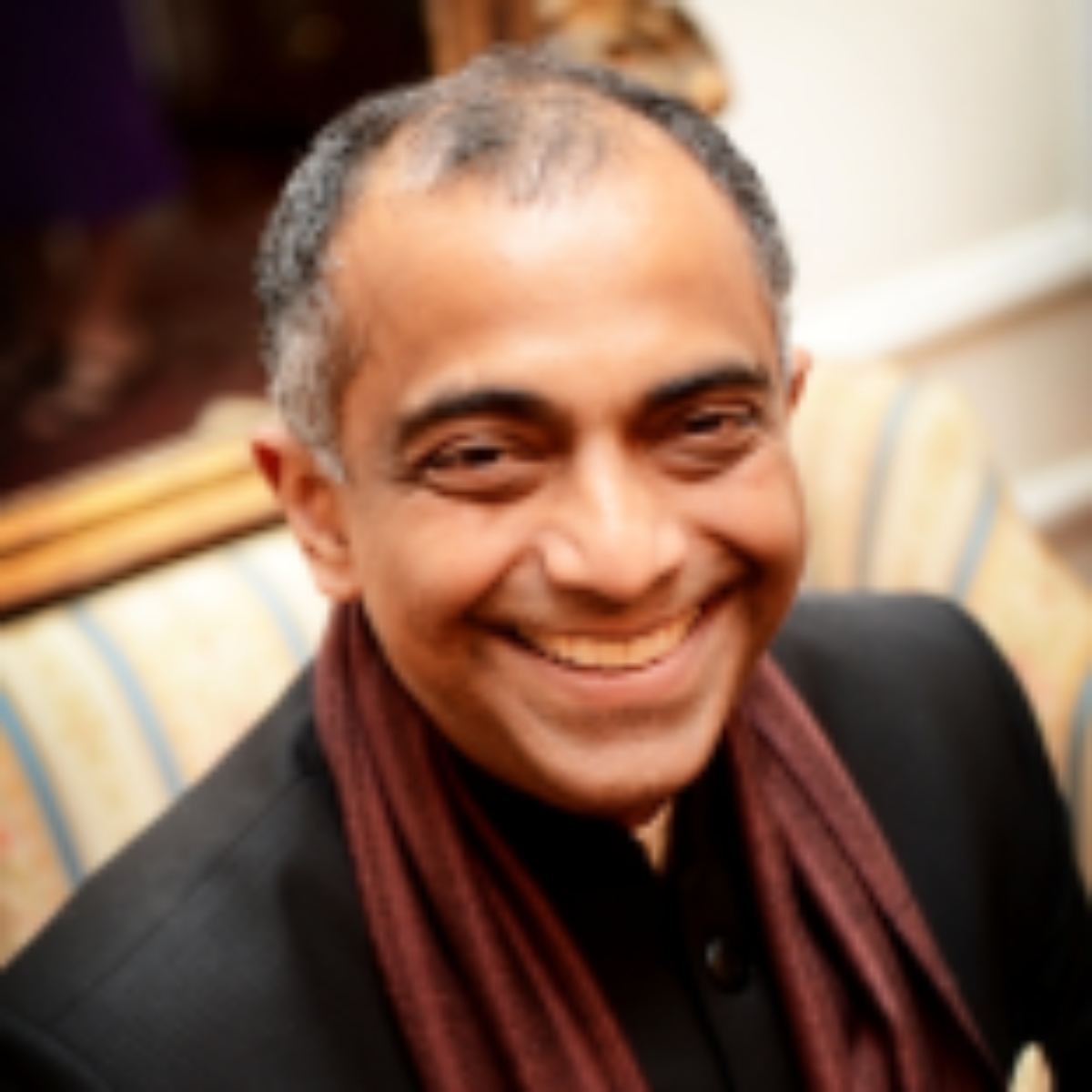 Vijayendra Rao is a Lead Economist in the Development Research Group at the World Bank. Combining a PhD in economics with an interest in anthropology and social theory, he studies how human relationality affects economic and political choices in poor countries. His previous work spans the broad topics of gender inequality, the relationship between culture and economic development, and mixing qualitative and quantitative techniques. His current work is on village governance and local development in India and Indonesia, and on social and economic mobility in rural India. Vijayendra Rao is a Lead Economist in the Development Research Group at the World Bank. Combining a PhD in economics with an interest in anthropology and social theory, he studies how human relationality affects economic and political choices in poor countries. His previous work spans the broad topics of gender inequality, the relationship between culture and economic development, and mixing qualitative and quantitative techniques. His current work is on village governance and local development in India and Indonesia, and on social and economic mobility in rural India.
Selected Documents: |
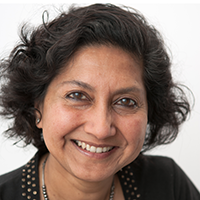 Isha Ray is an Assistant Professor at the Energy and Resources Group, UC Berkeley. Her research interests are water and development; technology and development; common property resources; and social science research methods. Her research projects in India, China and California focus on access to water for the rural and urban poor, and on the role of low-cost technologies in ensuring such access. She teaches courses on research methods in the social sciences, water and development, and environmental classics. In addition to research and teaching, she has extensive past and ongoing experience in the non-profit sector on sustainable rural development in India, and international development- and freshwater-related issues. Isha Ray is an Assistant Professor at the Energy and Resources Group, UC Berkeley. Her research interests are water and development; technology and development; common property resources; and social science research methods. Her research projects in India, China and California focus on access to water for the rural and urban poor, and on the role of low-cost technologies in ensuring such access. She teaches courses on research methods in the social sciences, water and development, and environmental classics. In addition to research and teaching, she has extensive past and ongoing experience in the non-profit sector on sustainable rural development in India, and international development- and freshwater-related issues. |
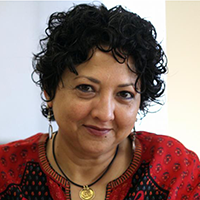 Raka Ray is Associate Professor of Sociology and South and Southeast Asia Studies, Sarah Kailath Chair in India Studies, and Chair of the Center for South Asia Studies at the University of California, Berkeley. She grew up in Calcutta, India, but has moved steadily west since then, receiving her AB from Bryn Mawr College, and her PhD from the University of Wisconsin, Madison. She has been at Berkeley since 1993. Professor Ray's areas of specialization are gender and feminist theory, domination and inequality, cultures of servitude and social movements. Publications on social movements include Fields of Protest: Women's Movements in India (University of Minnesota, 1999; and in India, Kali for Women, 2000), Women's Movements in the Third World: Identity, Mobilization and Autonomy with Anna Korteweg (Annual Review of Sociology, 1999) and Social Movements in India: Poverty, Power, and Politics, co-edited with Mary Katzenstein (Rowman and Littlefeld, 2005). She is at present writing a book titled Cultures of Servitude: The Making of a Middle Class in Calcutta and New York with co-author Seemin Qayum. Questions of elite and subaltern agency, subjectivity, and memory inform the book's methodological and interpretive approach. Articles from that project include "Masculinity, Femininity And Servitude: Domestic Workers in Calcutta in the Late Twentieth Century" (Feminist Studies 2000), and (with Seemin Qayum) "Grappling with Modernity: Calcutta's Respectable Classes and the Culture of Domestic Servitude" (Ethnography 2003). Raka Ray is Associate Professor of Sociology and South and Southeast Asia Studies, Sarah Kailath Chair in India Studies, and Chair of the Center for South Asia Studies at the University of California, Berkeley. She grew up in Calcutta, India, but has moved steadily west since then, receiving her AB from Bryn Mawr College, and her PhD from the University of Wisconsin, Madison. She has been at Berkeley since 1993. Professor Ray's areas of specialization are gender and feminist theory, domination and inequality, cultures of servitude and social movements. Publications on social movements include Fields of Protest: Women's Movements in India (University of Minnesota, 1999; and in India, Kali for Women, 2000), Women's Movements in the Third World: Identity, Mobilization and Autonomy with Anna Korteweg (Annual Review of Sociology, 1999) and Social Movements in India: Poverty, Power, and Politics, co-edited with Mary Katzenstein (Rowman and Littlefeld, 2005). She is at present writing a book titled Cultures of Servitude: The Making of a Middle Class in Calcutta and New York with co-author Seemin Qayum. Questions of elite and subaltern agency, subjectivity, and memory inform the book's methodological and interpretive approach. Articles from that project include "Masculinity, Femininity And Servitude: Domestic Workers in Calcutta in the Late Twentieth Century" (Feminist Studies 2000), and (with Seemin Qayum) "Grappling with Modernity: Calcutta's Respectable Classes and the Culture of Domestic Servitude" (Ethnography 2003). |
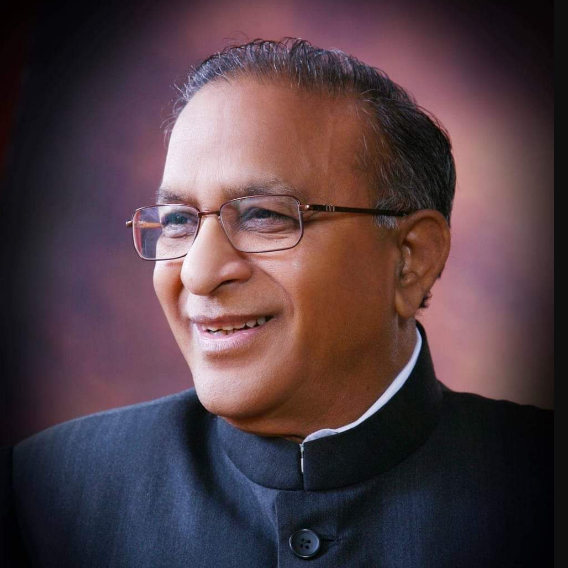 Jaipal Reddy is Union Minister of Urban Affairs. He completed an MA from Osmania University. He has had a long association with the Congress Party, serving as President of the A.P. Youth Congress, 1965-71 and General Secretary of Andhra Pradesh Congress Committee, 1969-72. Following his suspension from the Congress for opposition to Emergency, he joined the Janata Party and was its Leader in the Andhra Pradesh Legislative Assembly, Deputy Leader of Janata Party Parliamentary Group; General Secretary, Janata Dal; Spokesman, Janata Dal, 1988 to 1991. Shri Reddy has been Member, (i) Consultative Committee of the Ministry of Finance, (ii) Committee on Science and Technology, Environment and Forests, (iii) Business Advisory Committee, Rajya Sabha, (iv) General Purposes Committee, Rajya Sabha, (v) Committee on Defence, (vi) Joint Parliamentary Committee to suggest facilities and remuneration for Members of Parliament and (vii) National Integration Council; elected to the Rajya Sabha in April, 1990. After rejoining Congress, he was elected to the Lok Sabha. He served as the minister for Information and Broadcasting in the government on two occasions: in 1997 1998 under I. K. Gujral and from 2004 under Manmohan Singh with additional responsibility for Culture. Shri Reddy received Outstanding Parliamentarian Award in 1998. Jaipal Reddy is Union Minister of Urban Affairs. He completed an MA from Osmania University. He has had a long association with the Congress Party, serving as President of the A.P. Youth Congress, 1965-71 and General Secretary of Andhra Pradesh Congress Committee, 1969-72. Following his suspension from the Congress for opposition to Emergency, he joined the Janata Party and was its Leader in the Andhra Pradesh Legislative Assembly, Deputy Leader of Janata Party Parliamentary Group; General Secretary, Janata Dal; Spokesman, Janata Dal, 1988 to 1991. Shri Reddy has been Member, (i) Consultative Committee of the Ministry of Finance, (ii) Committee on Science and Technology, Environment and Forests, (iii) Business Advisory Committee, Rajya Sabha, (iv) General Purposes Committee, Rajya Sabha, (v) Committee on Defence, (vi) Joint Parliamentary Committee to suggest facilities and remuneration for Members of Parliament and (vii) National Integration Council; elected to the Rajya Sabha in April, 1990. After rejoining Congress, he was elected to the Lok Sabha. He served as the minister for Information and Broadcasting in the government on two occasions: in 1997 1998 under I. K. Gujral and from 2004 under Manmohan Singh with additional responsibility for Culture. Shri Reddy received Outstanding Parliamentarian Award in 1998. |
 Ananya Roy is Associate Dean of International & Area Studies at the University of California, Berkeley. In this capacity, she co-chairs the Berkeley India Initiative (with Raka Ray) and oversees undergraduate and graduate teaching programs. Roy is also Associate Professor in the Department of City and Regional Planning where she teaches in the fields of comparative urban studies and international development. In 2006, Roy was awarded the Distinguished Teaching Award, the highest teaching honor UC Berkeley bestows on its faculty. Ananya Roy is Associate Dean of International & Area Studies at the University of California, Berkeley. In this capacity, she co-chairs the Berkeley India Initiative (with Raka Ray) and oversees undergraduate and graduate teaching programs. Roy is also Associate Professor in the Department of City and Regional Planning where she teaches in the fields of comparative urban studies and international development. In 2006, Roy was awarded the Distinguished Teaching Award, the highest teaching honor UC Berkeley bestows on its faculty.
Roy holds a Ph.D. (1999) from the Department of City and Regional Planning at the University of California at Berkeley. She is the author of City Requiem, Calcutta: Gender and the Politics of Poverty (University of Minnesota Press, 2003) and co-editor of Urban Informality: Transnational Perspectives from the Middle East, South Asia, and Latin America (Lexington Books, 2004). Her current research project is entitled Poverty Experts: The New Global Order of Development. Funded by the National Science Foundation, it examines how development policies are produced, funded, and implemented. |
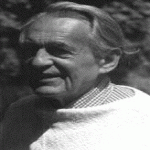 Lloyd Rudolph is Professor Emeritus of Political Science at the University of Chicago. He received a BA from Harvard College, an MPA in 1950 from what later became Harvard's Kennedy School of Government, and a Ph.D. in 1956 in Political Science, from Harvard University. A specialist in the study of India, he has co-authored eight books with Susanne Hoeber Rudolph: The Modernity of Tradition: Political Development in India [1967]; Education and Politics in India [1972]; The Regional Imperative: The Administration of US Foreign Policy Towards South Asian States [1980]; Gandhi: The Traditional Roots of Charisma [1983]; Essays on Rajputana [1984]; In Pursuit of Lakshmi: The Political Economy of the Indian State [1987]; Reversing the Gaze: The Amar Singh Diary, a Colonial Subject's Narrative of Imperial India [2000, 2005] and, most recently, Postmodern Gandhi and Other Essays: Gandhi in the World and at Home; as well as edited several others. Lloyd Rudolph is Professor Emeritus of Political Science at the University of Chicago. He received a BA from Harvard College, an MPA in 1950 from what later became Harvard's Kennedy School of Government, and a Ph.D. in 1956 in Political Science, from Harvard University. A specialist in the study of India, he has co-authored eight books with Susanne Hoeber Rudolph: The Modernity of Tradition: Political Development in India [1967]; Education and Politics in India [1972]; The Regional Imperative: The Administration of US Foreign Policy Towards South Asian States [1980]; Gandhi: The Traditional Roots of Charisma [1983]; Essays on Rajputana [1984]; In Pursuit of Lakshmi: The Political Economy of the Indian State [1987]; Reversing the Gaze: The Amar Singh Diary, a Colonial Subject's Narrative of Imperial India [2000, 2005] and, most recently, Postmodern Gandhi and Other Essays: Gandhi in the World and at Home; as well as edited several others.
Selected Documents:
|
|
Selected Documents:
|
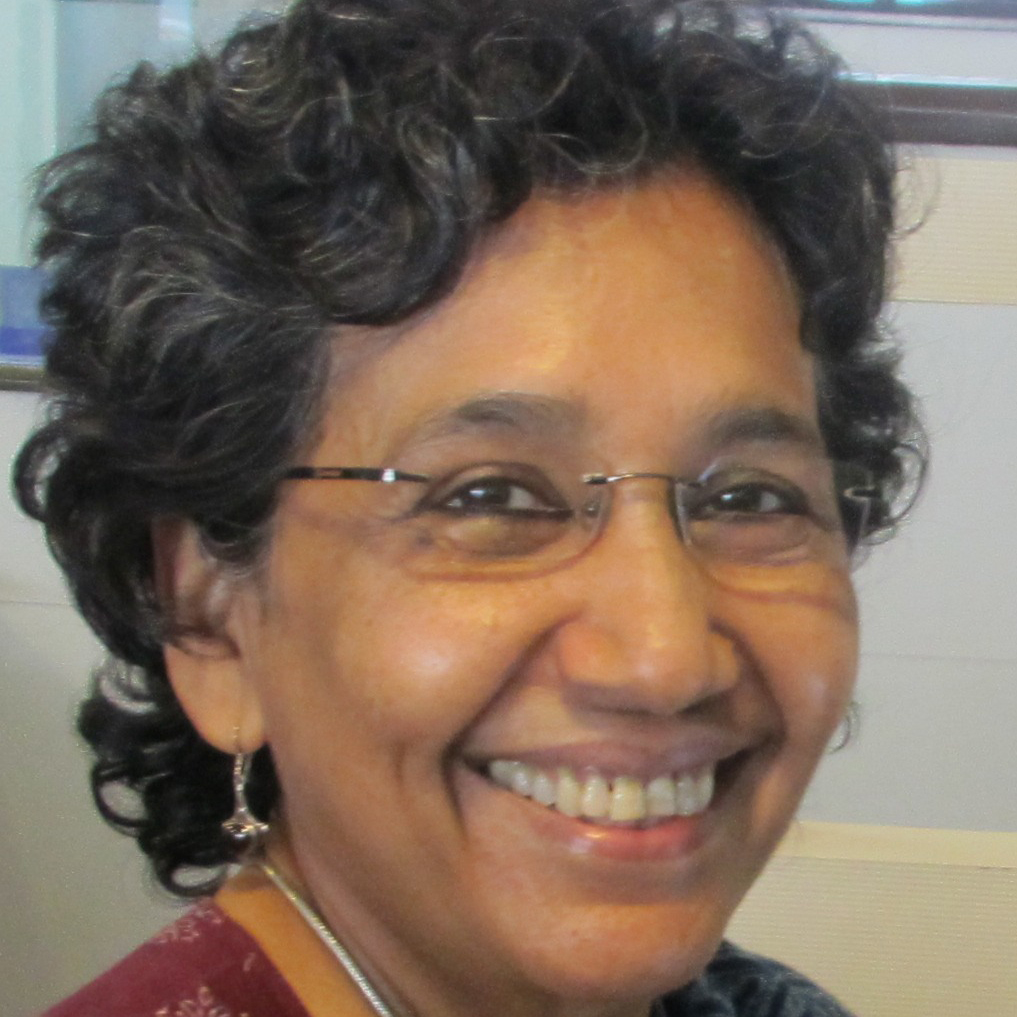 Kalpana Sharma is an independent journalist, columnist and media consultant. She has been, until recently, Deputy Editor and Chief of Bureau of The Hindu in Mumbai. In over three decades as a full-time journalist, she has held senior positions in Himmat Weekly, Indian Express and the Times of India. Her special areas of interest are environmental and developmental issues. She writes a fortnightly column in The Hindu's Sunday Magazine section, The Other Half, that comments on contemporary issues from a gender perspective. She has also followed and commented on urban issues, especially in the context of Mumbai's development. Kalpana Sharma is the author of Rediscovering Dharavi: Stories from Asia's Largest Slum (Penguin 2000) and has co-edited with Ammu Joseph Whose News? The Media and Women's Issues (Sage 1994, 2006) and Terror Counter-Terror: Women Speak Out (Kali for Women, 2003). Kalpana Sharma is an independent journalist, columnist and media consultant. She has been, until recently, Deputy Editor and Chief of Bureau of The Hindu in Mumbai. In over three decades as a full-time journalist, she has held senior positions in Himmat Weekly, Indian Express and the Times of India. Her special areas of interest are environmental and developmental issues. She writes a fortnightly column in The Hindu's Sunday Magazine section, The Other Half, that comments on contemporary issues from a gender perspective. She has also followed and commented on urban issues, especially in the context of Mumbai's development. Kalpana Sharma is the author of Rediscovering Dharavi: Stories from Asia's Largest Slum (Penguin 2000) and has co-edited with Ammu Joseph Whose News? The Media and Women's Issues (Sage 1994, 2006) and Terror Counter-Terror: Women Speak Out (Kali for Women, 2003). |
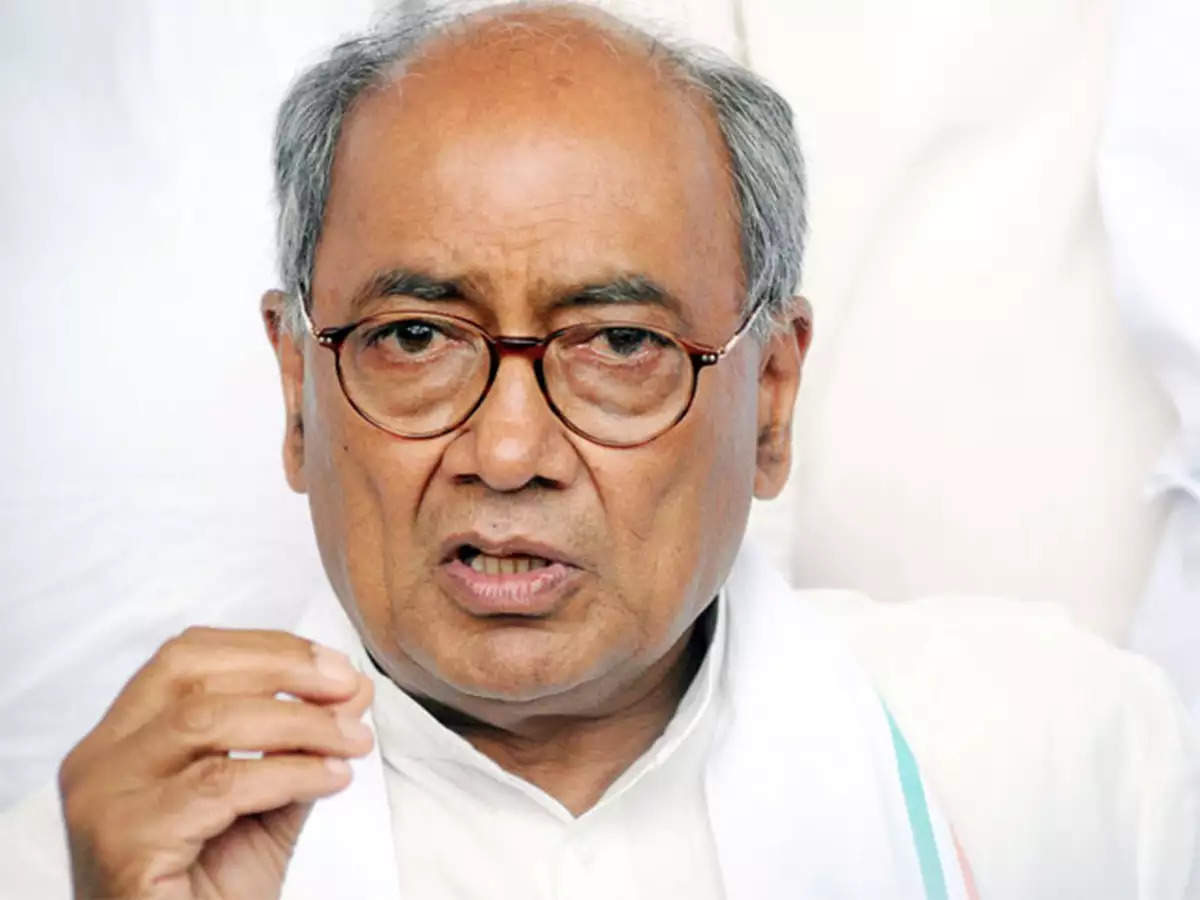 Digvijay Singh is the former Chief Minister of Madhya Pradesh, a position he held for two terms from 1993 to 2003. During this period, Singh initiated a series of reforms that sought to decentralize power from the state's capital, Bhopal, to its villages. He was made Member, Congress Working Committee in February, 2004 and continues as General Secretary, All India Congress Committee, New Delhi. Digvijay Singh is the former Chief Minister of Madhya Pradesh, a position he held for two terms from 1993 to 2003. During this period, Singh initiated a series of reforms that sought to decentralize power from the state's capital, Bhopal, to its villages. He was made Member, Congress Working Committee in February, 2004 and continues as General Secretary, All India Congress Committee, New Delhi.
Shri Singh received his early education in Daly College, Indore. An engineering graduate from Govindram Saksesaria Technology Institute, Indore, Shri Digvijay Singh joined active politics in 1971. Shri Digvijay Singh was first elected to the Madhya Pradesh Legislative Assembly on a Congress ticket from Raghogarh constituency in 1977. He was again returned to the Assembly in 1980 from the same constituency and inducted as a Minister of State in the Arjun Singh Ministry. Shri Singh held the portfolio of Agriculture. Later, he was elevated to the rank of Cabined Minister and held the portfolio of Irrigation. Shri Digvijay Singh was elected to the Lok Sabha from Rajgarh constituency in 1984. He has held the post of MPCC (I) President twice. First, he was elected to this post in 1984 and again in 1992. He was again elected to the Lok Sabha in 1991 from Rajgarh constituency. |
|
Selected Documents: |
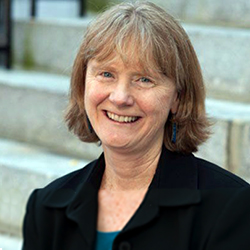 Margaret Weir is Professor of Political Science and Sociology at the University of California, Berkeley and a nonresident Senior Fellow at the Brookings Institution. Before coming to Berkeley in 1997, she was a Senior Fellow in Governmental Studies at the Brookings Institution (1992-1997) and was a member of the faculty of the Government Department at Harvard University (1985-1992). She is a Fellow of the American Academy of Arts and Sciences. Margaret Weir is Professor of Political Science and Sociology at the University of California, Berkeley and a nonresident Senior Fellow at the Brookings Institution. Before coming to Berkeley in 1997, she was a Senior Fellow in Governmental Studies at the Brookings Institution (1992-1997) and was a member of the faculty of the Government Department at Harvard University (1985-1992). She is a Fellow of the American Academy of Arts and Sciences.
Weir has written widely on social policy and politics in the United States. She is the author of several books including, Schooling for All: Race, Class and the Decline of the Democratic Ideal (coauthored with Ira Katznelson, Basic Books 1985); and Politics and Jobs: The Boundaries of Employment Policy in the United States (Princeton University Press, 1992) and editor of several others. She is currently working a study of metropolitan inequalities in the United States, with a particular focus on the changing politics of poverty in metropolitan areas, and second study examining the politics of federalism and health care reform in the United States. |
Search
Speakers
Institute for South Asia Studies
University of California, Berkeley
10 Stephens Hall, Berkeley, CA 94720-2310
Tel: (510) 642-3608 | Fax: (510) 643-5793 | Books: (510) 642-3187
Support ISAS | Join Mailing List | Directions
© Copyright UC Regents. All Rights Reserved.
Copyright © 2024. All rights reserved.
Designed By Zymphonies
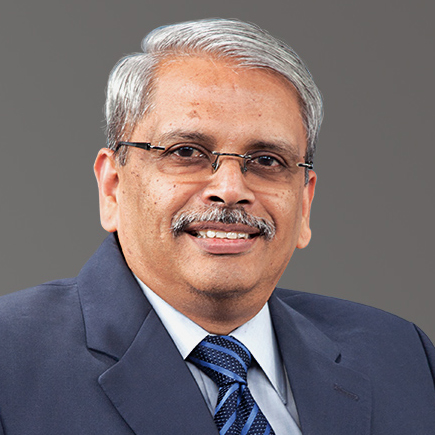 S. Gopalakrishnan (called Kris by his colleagues) is one of the founders of Infosys Technologies Limited, a highly respected Consulting, IT services and Business Process Management company operating in the global market. He has played a key role at Infosys in defining the company strategy and in using technology and innovation continuously to maintain its leadership of the industry. Kris obtained M.Sc. (Physics) in 1977 and M. Tech. (Computer Science) in 1979, both from IIT, Madras. In 1981, Kris, along with N.R. Narayana Murthy and five others, founded Infosys Technologies Limited. Kris is currently the Chairman of the Indian Institute of Information Technology and Management (IIITM), Kerala, and Vice Chairman of the Information Technology Education Standards Board (BITES) set up by Karnataka Government. He is on the board of directors of National Internet Exchange of India. He is a member of ACM, IEEE, and IEEE Computer Society.
S. Gopalakrishnan (called Kris by his colleagues) is one of the founders of Infosys Technologies Limited, a highly respected Consulting, IT services and Business Process Management company operating in the global market. He has played a key role at Infosys in defining the company strategy and in using technology and innovation continuously to maintain its leadership of the industry. Kris obtained M.Sc. (Physics) in 1977 and M. Tech. (Computer Science) in 1979, both from IIT, Madras. In 1981, Kris, along with N.R. Narayana Murthy and five others, founded Infosys Technologies Limited. Kris is currently the Chairman of the Indian Institute of Information Technology and Management (IIITM), Kerala, and Vice Chairman of the Information Technology Education Standards Board (BITES) set up by Karnataka Government. He is on the board of directors of National Internet Exchange of India. He is a member of ACM, IEEE, and IEEE Computer Society.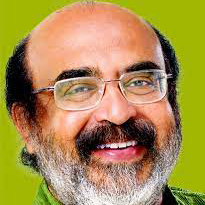 Dr. T.M. Thomas Isaac is the Finance Minister of Kerala. He has a Ph.D in Economics from Jawaharlal Nehru University and is the author of numerous scholarly books and articles in both English and Malayalam. Book titles include Political Economy of Poverty; Science and Revolution; Local Democracy and Development: People's Campaign for Decentralised Planning in Kerala (with Richard W. Franke) and Kerala and Man (winner of the Kerala Sahitya Academy Award). Articles include Kerala's People's Plan Campaign 1996-2001: A Critical Assessment and Planning for Empowerment: People's Campaign for Decentralized Planning in Kerala.
Dr. T.M. Thomas Isaac is the Finance Minister of Kerala. He has a Ph.D in Economics from Jawaharlal Nehru University and is the author of numerous scholarly books and articles in both English and Malayalam. Book titles include Political Economy of Poverty; Science and Revolution; Local Democracy and Development: People's Campaign for Decentralised Planning in Kerala (with Richard W. Franke) and Kerala and Man (winner of the Kerala Sahitya Academy Award). Articles include Kerala's People's Plan Campaign 1996-2001: A Critical Assessment and Planning for Empowerment: People's Campaign for Decentralized Planning in Kerala.